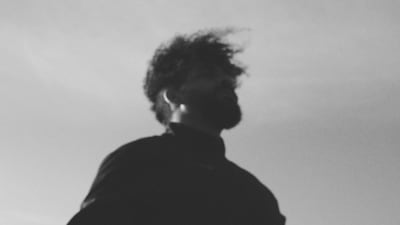It seems almost contradictory in today's culture of online celebrity oversharing, but sometimes, successful musicians prefer to stay in the shadows.
The late soul and funk legend Prince perfected the art of being enigmatic, while pop queens Beyonce and Adele have managed to sustain their fan base while keeping away from the limelight. "And this is the reason why they have amazing and dedicated fans," says RnB singer Sobhhi. "By doing it this way, it keeps the focus solely on the music and that's the thing that ultimately lasts at the end of the day."
It is a lesson the regional emerging talent has studied well – almost, too well. Even I can’t tell you much about Sobhhi, the person, as he prefers to keep his profile hazy.
But during our conversation, I manage to ascertain a few facts: he comes from an Arabic-speaking country in the Middle East, he is currently living in Dubai, and has lived life criss-crossing between UAE and US cities, including New York, Los Angeles and Chicago, where he undertook his university studies.
Want to know his age? Forget it. As for his cover art, it's mostly a series of nondescript silhouettes. But that's OK, as there are plenty of other details to discuss with the singer. Over the space of three years, Sobhhi has been releasing some of the most interesting RnB tracks to come of out of the region and he promises plenty of new tunes throughout the year. Sung in both Arabic and English, the songs are all mini production triumphs and possess a cinematic and noir-ish quality that allow his sultry vocals to shine through.
The immediate thought is that he could be the region's own version of Canadian crooner The Weeknd (not due to the secrecy of his identity but more due to the similarities in singing styles), but Sobhhi is steadily fashioning his own sound – which is rooted in the region and yet somehow universal at the same time.
Last year's Abu Dhabi is a case in point. An ode to the capital this is not, as the track blends Gulf percussion rhythms and seductive soul synths as Sobhhi serenades a Scorpio woman in the throes of her own turmoil.
"It was a toxic relationship," he says. "We had things in common and I would go to Abu Dhabi to meet her. Some nights it would be raining."
To underpin how personal the track is, it ends with snatches of her voice lifted from a phone message sent during their relationship.
Abu Dhabi was one of six songs – including the hypnotic 4am in Riyadh – on an EP, released last year. It is a formidable presentation of Sobhhi's craft that often wilfully contorts RnB song-writing conventions. You may struggle to find a catchy melody in many of the tracks, but you are bound to feel a certain way about the immersive production.
"I feel that this is where RnB, hip-hop and pop music is heading in a way: in that hooks, as a conceptual form, are increasingly becoming irrelevant," he says. "And as a songwriter that really gives me a lot of space. It's like in school when we're studying how to write essays and the teacher would say that we need an introduction, body and conclusion. Now, musically, we are moving away from that and writing free-form."
That said, there is still method even when there is a freeform approach. In a singular move, Sobhhi has been steadily releasing a series of colour-coded EPs (Red, Black, White and the upcoming Purple) that compiles some of the various sounds he has been composing. "The idea came from the fact that RnB as a genre has expanded so wide, you just can't label it as rhythm and blues anymore because there are a lot of crossovers with other genres happening today," he explains.
"So what I am trying to do with each colour is to capture a certain flavour of feeling. Red is more alternative RnB, black is that trap-soul sound, Purple is hip-hop-leaning and White will be more soul and neo-pop."
It's a neat trick. Not only does such versatility allow Sobhhi's tracks to populate various online playlists, but that sharp curatorial eye meant his songs and EP scored on the Anghami and Apple Music charts, with more than five million accumulated streams.
This is not bad for an artist who has yet to play his first official concert: Sobhhi says him performing live will eventually happen.
"It's a matter of timing as I do feel there is more work that needs to be done," he says. "I have this massive catalogue of songs that I want to be out first, before I even think about performing live. I want it to all fit and be part of the bigger story that I am trying to tell."


